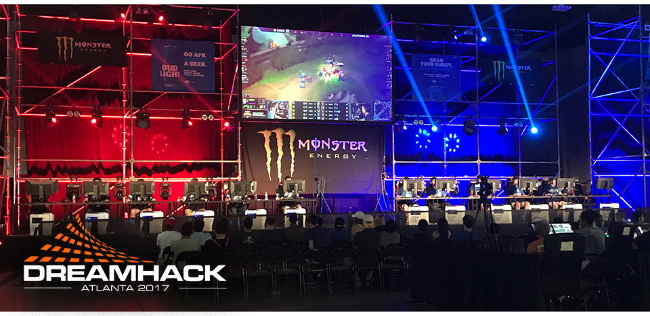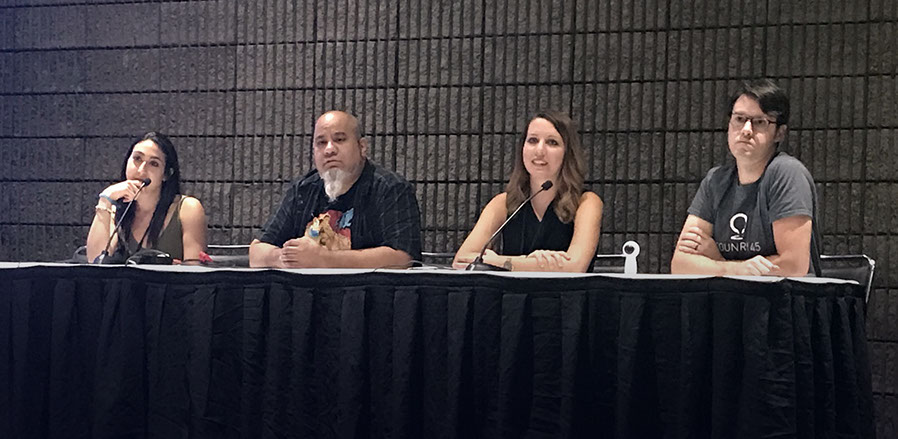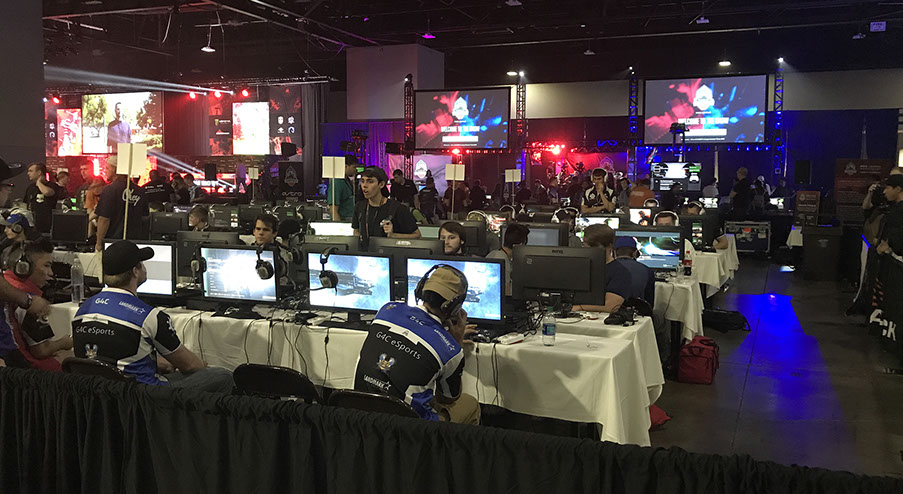
26 Jul Exploring Immersive Technologies at DreamHack Atlanta
Futurus took part in a panel last weekend at DreamHack, the “largest LAN party and computer festival” according to the Guinness Book of World Records. We participated with a group of some of Atlanta’s best and brightest immersive technology minds all brought together by local favorite, Hypepotamus. Holly Beilin, the Editor-in-Chief of the Southeast’s most beloved tech news source, led the charge and moderated the discussion on virtual reality, augmented reality, its growth specific to Atlanta, and the future of immersive technology. Other panelists included Scott Driscoll, Lead Virtual Reality Developer at Foundry 45 and Dean Velez, Creative Art Director at Sprocket Creative.

Why eSports?
Virtual reality and gaming go hand in hand in many ways. The eSports market is valued by Goldman Sachs at “$500 million in 2016 and expects the market will grow at 22% annually compounded over the next three years into a more than $1 billion opportunity.” Virtual reality is growing up in an age where technology rules, so it’s a no brainer that it will collide with eSports in the future. We were pleased to see various VR developers showcasing their work on the expo floor, including one of our local favorites – Project Ghost.

Virtual and Augmented Reality Content – Get Out There and Build It!
Speaking at DreamHack was fantastic because the audience consisted of people already interested in the field of immersive technology. One of our favorite things to talk about is how to achieve a career in the field and educate people on the many resources available. There are quite a few higher education programs that explore virtual and augmented reality development, including Atlanta’s new Creative Media Industries Institute (CMII) at Georgia State University. Many of the programs we use, including Unity 3D and Adobe Creative Cloud, have free or low-cost monthly subscriptions to get interested people started. We also recommend Lynda for tutorials and online classes about these programs. So if you’re interested, get to work!
Ethics in Immersive Technology
Ethics is a topic that comes up quite often in the Q&A portion of any panel I’m on. At what age is it appropriate to introduce the technology? Are there any limitations for content and ratings like traditional video games? Are we all moving towards a dystopian future? The answers are still evolving, but at this time, major headset manufacturers recommend ages 13 and up for use. While anyone can try virtual reality headsets, young people’s eyes are still developing, and prolonged use can hinder proper development. Content ratings are currently the same as video games and mobile apps because they are being distributed on the same platforms. While I don’t think we are moving towards a dystopian future, that all comes down to society. We have a new platform that is gaining traction quickly and we, as people, must be responsible with it.
The panel was a great blend of experience, case studies, creative thought, and enthusiastic discussion surrounding a topic that we, at Futurus, work with every day. It is always encouraging to talk to people who share similar interests and guide them on their immersive technology journey. Thank you to Hypepotamus for including us in the discussion. DreamHack continues its world tour stopping in Sweden this September, and returns to the U.S. this October in Denver, Colorado.




